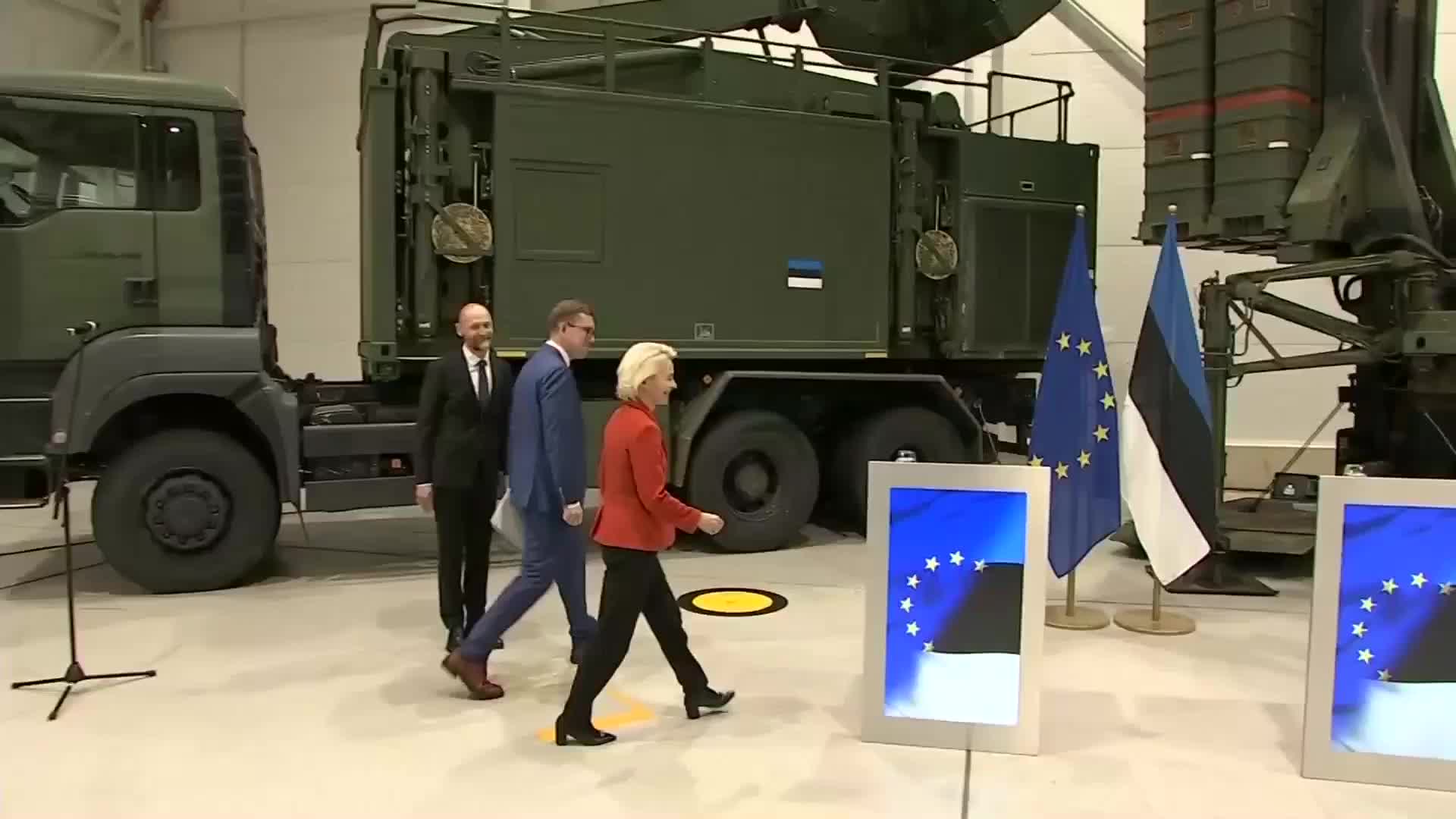
'Predator has to pay' - VdL on advancing use of Russian frozen assets, dodges question on EU consensus
"European Commission President Ursula von der Leyen underscored the advancement of using Russian frozen assets as part of its 'ironclad' support to Ukraine during a joint press conference with Estonian Prime Minister Kristen Michal in Amari on Saturday. "We are also advancing the work on the use of the Russian frozen assets because it's clear that the predator has to pay for what he did," she said. "They are probing our vulnerabilities, specifically in the Baltic airspace and at sea[...] We have to raise attention to the strategic importance of the Baltic Sea," she continued. Von der Leyen also claimed that US President Donald Trump pledged 'American presence' in security guarantees for Ukraine. "We need the backstop of the Americans. They will provide," she stated. Following his meeting with Ukrainian President Volodymyr Zelensky and other European leaders, Trump ruled out the participation of American ground troops in security guarantees. However, he expressed openness to providing air support. Commenting on frozen Russian forfeiture, Von der Leyen dodged a question of 'consensus' among European Union (EU) state members on the issue. "We are already using the frozen assets," she continued. "So far, 3.7 billion euros from the windfall profits have been channelled to Ukraine, but we are also reflecting currently on the next steps and how to best and better use the frozen assets." Meanwhile, Michal emphasised the assets confiscation is not decided yet, noting that its 'certain risks[...] probably can be mitigated.' EU foreign ministers appeared divided over the confiscation of Russian assets ahead of ministerial meetings in Copenhagen on the same day. While Estonian Margus Tsahkna advocated for the confiscation as the source of 'lots of money' needed for Ukraine, Belgian Maxime Prevot strongly opposed the move, citing 'legal, financial, and judicial' consequences. Approximately 210 billion euros ($245.85 billion) in Russian assets are frozen within the bloc due to sanctions linked to Moscow's operation in Ukraine, according to the EU. While Ukraine and several Baltic states urged the seizure of the assets and allocating them to support Kiev, major EU members, including France and Germany, have opposed the idea, questioning the legal basis for confiscation. "